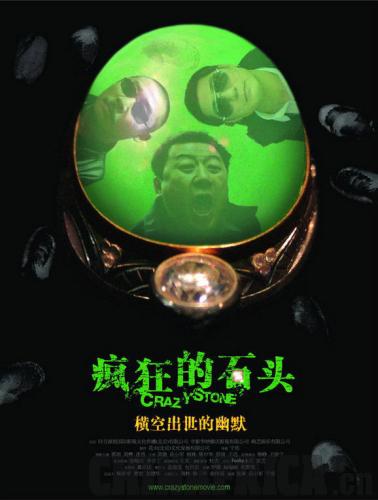|
 |
|
BOX OFFICE HIT: A scene from Crazy Stone |
Organizers of China's upcoming film festivals are finally giving recognition to the little guys, to encourage a generation of young, talented directors producing low budget films.
Several nominees were announced on September 10 to compete for the Small and Medium-Budget Film Prize at the annual Golden Rooster and Hundred Flowers Film Festival, later in the year.
The new award was established this year to recognize recent productions with an investment less than 8 million yuan ($1.25 million) and which had achieved better than expected box office performances and critical acclaim.
China's overall box office earnings exceeded 10 billion yuan ($1.56 billion) last year, increasing from less than 1 billion yuan ($156 million) in 2000. But as usual, 80 percent of the total went to blockbusters and 20 percent to small and medium-budget productions. Nearly half of last year's productions failed to be shown in major urban cinemas because of their dim profit prospects and the scarcity of cinemas. Only 260 of the 530 feature films produced in China last year were shown at cinemas.
"China produces 250 to 300 low-budget films annually, in addition to 40 commercial mega productions and 50 art films," said Zhang Hongsen, Deputy Director of the Film Administration Department under the State Administration of Radio, Film and Television.
A breakthrough
"Although blockbusters attract more attention, they also take longer to make, which leaves small and medium-budget productions enough room to survive," said Yu Dong, President of NYSE-listed Bona Film Group.
Compared with star-studded blockbusters, some distinct and creative low-budget films often win higher acclaim if they get shown in cinemas. However, the problem is whether operators of profit-seeking cinemas can envision that popularity and recognize their box-office potential.
The Piano in a Factory, an award winner at the 23rd Tokyo International Film Festival, cost 6 million yuan ($937,500). Although it also won several awards in the 14th Shanghai International Film Festival and the 14th Huabiao Film Awards of China, theaters in some first-tier cities began pulling it from screens almost immediately after its premiere. But some theaters in Beijing persisted, and saw its box office rebound in 25 days, despite the presence of summer blockbusters Transformers 3: Dark of the Moon and Harry Potter and the Deathly Hallows: Part 2.
In Piano, the hero makes a living performing at funerals or weddings with his amateur band after being laid off. After losing his job, he soon loses his wife, who files for divorce. To win custody of his daughter, who loves playing the piano, and with no money to buy her one, he forges a steel piano.
The story is set in the early 1990s when many state-owned enterprises went bankrupt and millions of workers lost their jobs and lived hard lives, and therefore has resonance with Chinese audiences.
Many viewers said they went to see the movie with low expectations, but were surprised by the story and the way it was told, and considered it the best low-budget movie they had seen this year.
"No supermarket will sell just one shampoo brand, and likewise theaters should figure out a proper proportion for films of various genres," said Ding Junjie, Vice Director of the Academic Board of the Communication University of China. "The true prosperity of China's movie industry will rely on whether China has an established group of professionals for small- and medium-budget productions."
|